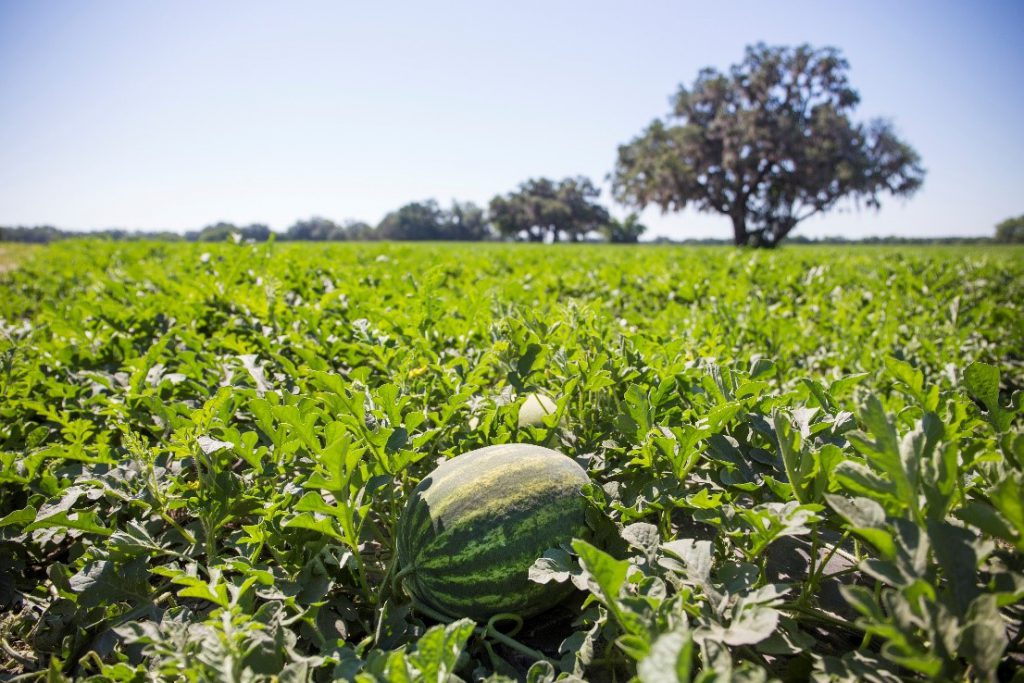Introduction
This morning I drank coffee and ate a giant bowl of oatmeal with blueberries and honey. Afterward, my family and I decided to go hiking. I put on my wool socks and filled up our reusable water bottles with water. My morning was made possible by provisioning ecosystem services.
Provisioning ecosystem services are the direct material goods provided or produced by ecosystems. My coffee, oatmeal, blueberries, honey, wool, and freshwater that I needed for my breakfast and preparations for my hike are all linked to provisioning ecosystem services. Without provisioning ecosystem services my morning would not have been possible.
The current ecosystem services series is outlining the nearly innumerable benefits we receive from our environment. Ecosystem services are interconnected with one another and our environmental impacts directly affect those benefits. Any disruption of an ecosystem system is resonating. Florida’s social, economic, and environmental future is dependent on healthy, productive ecosystem services. Whether vital for economic development, public health, or climate mitigation, every ecosystem service beneficially affects every Floridian.
Provisioning Ecosystem Services
In the previous articles, we discussed ecosystem services and introduced the four ecosystem categories: provisioning, regulating, supporting, and cultural services. This week’s article will allow us to dive deeper into the provisioning ecosystem services. As mentioned, provisioning ecosystem services are the material goods provided or produced by our environment. Provisioning ecosystem services support food, raw materials, freshwater, and medicinal resources.
Food
The environment supports our ability to provide food through agriculture and fisheries. The United States’ Department of Agriculture indicates that Florida’s ranchers and farmers utilized 9.70 million acres to provide a $7.64 billion worth of sales receipts in 2017, which is approximately $787.62 per agricultural acre. Florida’s agricultural production is directly benefitting from our provisional ecosystem services-or the environment’s ability to support agricultural production. Similarly, healthy water resources support Florida’s fisheries. In 2016, Florida’s fisheries provided a $237 million value.

Photo Courtesy of UF/IFAS Camila Guillen
Raw Materials
Provisional ecosystem services provide raw materials utilized for construction and manufacturing, such as wood, biofuels, fibers, wool, cotton, and leather goods. Florida’s forest industry contributed $25 billion in industry revenue in 2016-which includes forest production, product manufacturing, paper, forest chemical product, woodworking, trade lumber, and biomass.
Freshwater
Our survivability is rooted in freshwater availability. Provisional ecosystem services provide the necessary process for maintaining and storing freshwater resources. Freshwater is necessary for survivability for nearly all habitats but is necessary for healthy agriculture. Forests provide healthy freshwater sources through filtering and providing areas for groundwater recharge. Florida’s forests also reduce erosion, prevent sediment accumulation, reduce flood risks, and support healthy waterways. Without a healthy natural environment, the capacity for provisional ecosystem services to provide fresh water diminishes.
Medicines
Lastly, provisional ecosystem services can provide medicinal resources through a variety of plants and mushrooms. The classic example is the fungi genus Pennicillium’s ability to produce the antibiotic penicillin.
Healthy Environments Support Provisional Ecosystem Services
Provisional ecosystems are incredibly important to Florida and the world. Through food, raw materials, fresh water, and medicinal resources, our natural ecosystems provide and produce important goods. To benefit from provisional ecosystem services and our other ecosystem services, we must support a healthy environment. Without a healthy environment supported through best-management practices, we may lose ecosystem service capacity.
We take to our ecosystem services like podlings take to dirt- they are incredibly important to our social, economic, and environmental well-being. Ecosystem services are everywhere. As we continue the ecosystem services series together, explore your neighborhood and community. What ecosystem services are you beginning to see and recognize? How different would our environment be without these ecosystem services? As always, I’m rooting for you. If you have any questions, feel free to reach out to UF/IFAS Extension Alachua County.
Click HERE for the Fourth article in the Beyond the Air We Breathe Series on Cultural Ecosystem Services.
Post One: The Limitless Benefits of Our Environment
Post Two: Regulating Ecosystem Services
Post Three: Provisioning Ecosystem Services
Post Four: Cultural Ecosystem Services
Post Five: Supporting Ecosystem Services
 1
1
